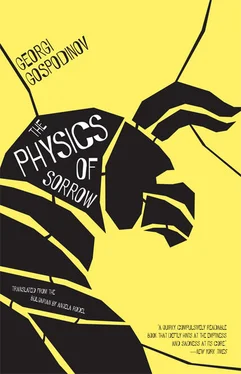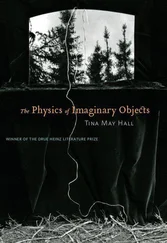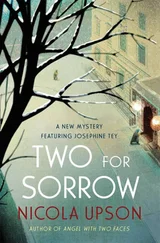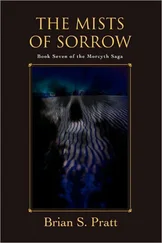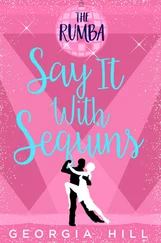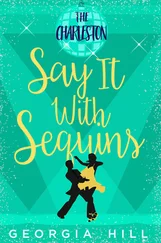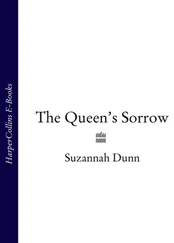SIDE CORRIDOR
A friend told me how as a child she was convinced that Hungary was up in the sky. Her grandmother was Hungarian and every summer she came to visit her daughter and her beloved granddaughter in Sofia. They always met her at the airport. They would arrive quite early, craning their heads upward like chicks until their necks grew sore, her mother would tell her: your grandma will show up any minute now. The grandmother from Hungary who came out of the sky. I like this story, I immediately tuck it away in the warehouse. I suspect that when the Hungarian grandmother passed away she simply stayed up there in heavenly Hungary, waving from some cloud — except that now she no longer lands.
THE CHIFFONIER OF MEMORIES
Four months later, in the middle of May, I was driving to Hungary in an old Opel. I had suggested to the newspaper I was working for that I write a story about Bulgarian military cemeteries from the World War II. The largest one is in Harkány in southern Hungary.
The boss agreed and here I am on the road through Serbia. Harkány, once a village, now a small town, is close to the site of the Battles of Drava. I soon left the highway and chose a more varied route through Stracin, Kumanovo, Prishtina, then I turned toward Kriva Palanka, through Niš, Novi Sad. I wanted to take all the roads my grandfather had trudged on foot through the mud in the winter of 1944. I had carefully studied the available military maps for the movements of the 11 thSliven Infantry Regiment, 3 rdInfantry Division, First Army. I drove, and in my pocket sat that folded sheet of paper. A Hungarian address was written on it.
I reached Harkány. There would be time for the military cemetery. Before that I wanted to find a house. I wandered for a while before I found the street written on the paper. Thank God the street name hadn’t been changed during those fifty years. I parked the car at the very end of the street and set out to find the house. It was only now that I stopped to think that, in fact, I had no idea what I was expecting from this late visit. My grandfather had lived here, billeted during those couple of calm weeks before the battles. Happy and worried at the same time. There’s the house, built before the war. It’s larger than my grandfather’s, I note with a certain envy, more Central European. It has a big garden with blooming spring flowers, but my grandma’s tulip’s are prettier, I tell myself in passing. At the far end of the garden there is an arbor, sitting inside it is a woman my grandfather’s age, with white, well-groomed hair, with no kerchief. I realize there’s no telling who she may be. Over fifty years, houses change their inhabitants, people move, they die. I push open the front gate, a bell above it announces my arrival. A man in his 50s comes out of the house. I greet him in English — I could’ve done it in Hungarian, thanks to my grandfather’s lessons, but I keep that to myself for now. Thank God, he speaks English, too. I explain that I am a journalist from Bulgaria, I even show him my press badge from the newspaper and say that I’m writing an article about Bulgarian soldiers who fought in this region during World War II. Have you been to the cemetery? The man asks me. I say that I haven’t been there yet. I’m interested in what the people living here know, what they remember. He finally invites me into the arbor with the elderly woman.
This is my mother, he says. We hold out our hands. A light, distrustful handshake. Her memory is failing, he explains. She can’t remember what she ate for dinner last night, but she remembers the war, there were Bulgarian soldiers here, I think they were even quartered here in the house. Then he turns to her and obviously tells her who I am and where I’ve come from. She only now notices me. Her memory is a chiffonier, I can sense her opening the long locked-up drawers. A long minute, she has to wade back through more than fifty years, after all. The man seems ill at ease with this silence. He asks her something. She turns her head slightly, without taking her eyes off me. It could pass as a tick, a negative response, or part of her own internal monologue. The man turns to me and says that at the end of January she suffered a brain hemorrhage and now her memory is no longer quite all there.
The end of January, you say?
Yes, the man says, slightly puzzled. What difference could that make to a foreigner?
My grandfather fought in this region, I say.
The man translates. I can’t explain how, but I’m sure she recognizes me. I’m the exact age now that my grandfather had been back then. My grandma also said that I am the spitting image of him — the same bulging Adam’s apple, lanky and slightly hunched, with the same distracted gait and slightly crooked nose. The old woman says something to her son, he jumps up, apologizing that he hasn’t offered me anything to drink and suggests cherry cake and coffee. I accept, since I want to stay here longer and he darts into the house. We are finally alone, sitting across from each other at the rough-hewn table in the arbor. The table is quite old — I wonder if my grandfather sat in this very arbor? Spring has gone berserk, bees are buzzing, nameless scents waft through the air, as if the world has just been created, without a past, without a future, a world in all its innocence, before chronology.
We look at each other. Between us lie almost sixty years and a man whom she remembers at twenty-five, and whom I saw off a few months ago at eighty-two. And no language in which we can say everything.
She had been a beautiful woman. I try to see her with my grandfather’s eyes from January of 1945. Amid all the ugliness, mud and death of the war you enter (I enter) the European home of a girl of twenty-something, blonde, with lovely skin and large eyes. Inside there is a gramophone, something you have never seen, music unlike any you’ve ever heard is playing. She is wearing a long, urban dress. It is calm and bright throughout the whole house, a sunbeam passes through the curtains, falling precisely on the porcelain bowl on the table. As if the war had never been. She is reading in a chair by the window. Some sound draws me out of the picture. Her glasses have fallen to the ground, I hand them to her. Crossing over half a century instantaneously is frightening. That beautiful face suddenly wrinkles and ages in seconds. First I thought of showing her the paper from my grandfather. Then I decided that I shouldn’t. We’ve had these few minutes alone (how clever of her to send her son away).
In front of her stands the grandson of that man. So everything has worked out as it should. Finally, here is the living letter, sent with such delay. So he survived. He returned to his wife and his infant son, the son grew up and had a son. And now here is the grandson, sitting in front of her. Life had taken a turn, she had been forgotten, gotten over, everything worked out as it should. A long-deferred tear trickles from her eye and gets lost in the endless labyrinth of wrinkles on her palm.
She grasps my hand, without taking her eyes from mine, saying slowly in impeccable Bulgarian: hello, thank you, bread, wine. I continue in Hungarian: szép (beautiful). I said it as if passing on a secret message from my dead grandfather and she understood. She squeezed my hand and let it go. The last two Bulgarian words I heard from her were “farewell” and “Georgi.” My grandfather and I had the same name. Her son reappears with the coffee, he immediately notices that his mother has cried, but doesn’t dare ask. We drink coffee, I ask him what he does, it turns out he’s a veterinarian (like my father, I was about to say, but take a sip of my coffee instead).
Is your grandfather still alive, he asks politely. He passed away in January, I reply. I’m really sorry to hear that, my condolences. I could clearly see that he did not suspect anything. She had decided to spare him that. Or perhaps I have imagined everything. I’ve avoided looking at him the whole time, so as not to discover too much of a likeness. After all, the world is full of men with crooked noses and bulging Adam’s apples. I got up to leave and kissed the woman’s hand. At the front gate he shook my hand just a second too long and for an instant I thought he must know everything. I quickly let go and headed around the corner to the car. I opened up the sheet of paper from my grandfather. A baby’s hand from 1945 had been traced in pencil above the address. Who could say whether it was the same one I had just shaken goodbye?
Читать дальше
